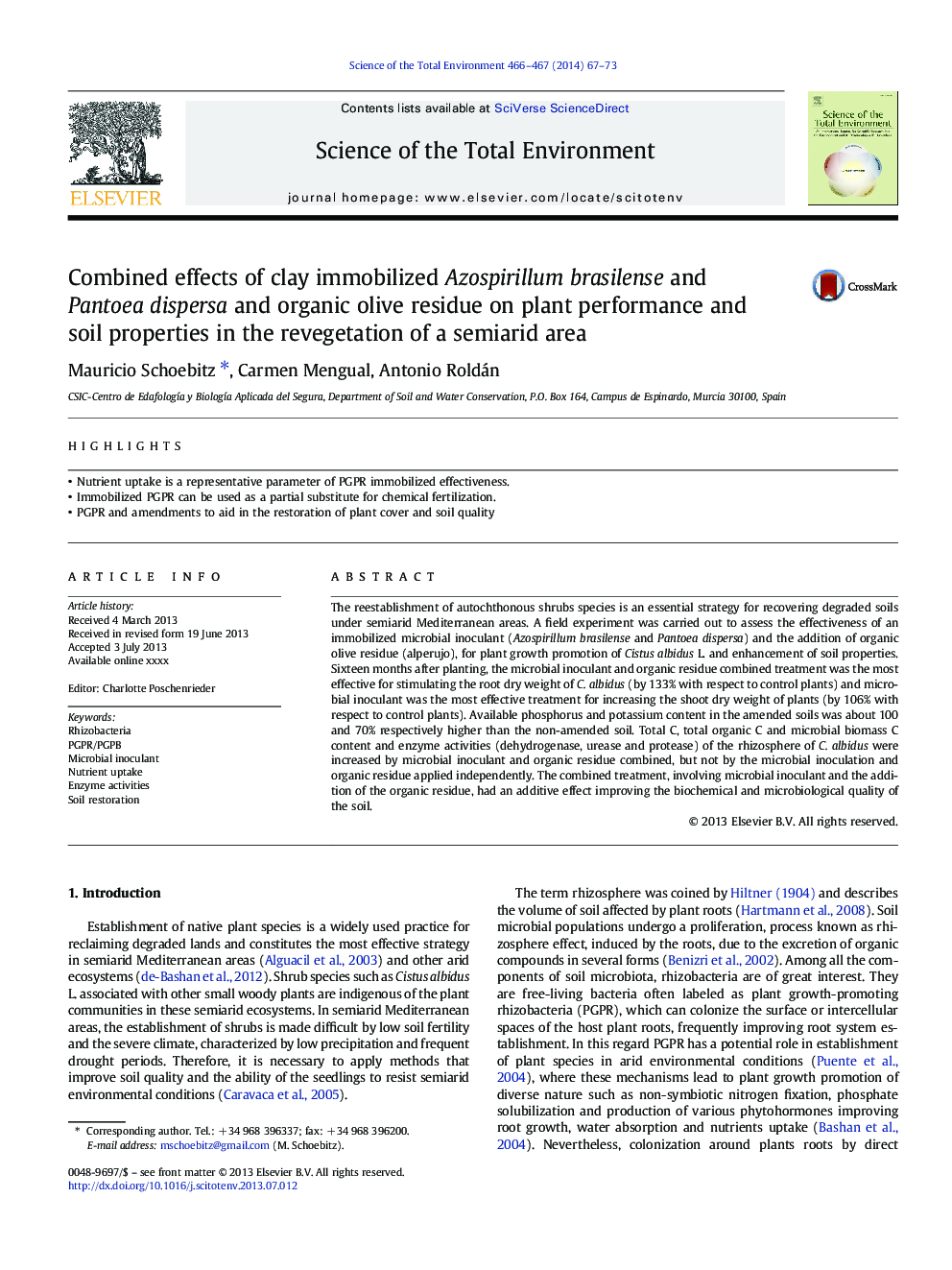| Article ID | Journal | Published Year | Pages | File Type |
|---|---|---|---|---|
| 6332114 | Science of The Total Environment | 2014 | 7 Pages |
Abstract
The reestablishment of autochthonous shrubs species is an essential strategy for recovering degraded soils under semiarid Mediterranean areas. A field experiment was carried out to assess the effectiveness of an immobilized microbial inoculant (Azospirillum brasilense and Pantoea dispersa) and the addition of organic olive residue (alperujo), for plant growth promotion of Cistus albidus L. and enhancement of soil properties. Sixteen months after planting, the microbial inoculant and organic residue combined treatment was the most effective for stimulating the root dry weight of C. albidus (by 133% with respect to control plants) and microbial inoculant was the most effective treatment for increasing the shoot dry weight of plants (by 106% with respect to control plants). Available phosphorus and potassium content in the amended soils was about 100 and 70% respectively higher than the non-amended soil. Total C, total organic C and microbial biomass C content and enzyme activities (dehydrogenase, urease and protease) of the rhizosphere of C. albidus were increased by microbial inoculant and organic residue combined, but not by the microbial inoculation and organic residue applied independently. The combined treatment, involving microbial inoculant and the addition of the organic residue, had an additive effect improving the biochemical and microbiological quality of the soil.
Related Topics
Life Sciences
Environmental Science
Environmental Chemistry
Authors
Mauricio Schoebitz, Carmen Mengual, Antonio Roldán,
